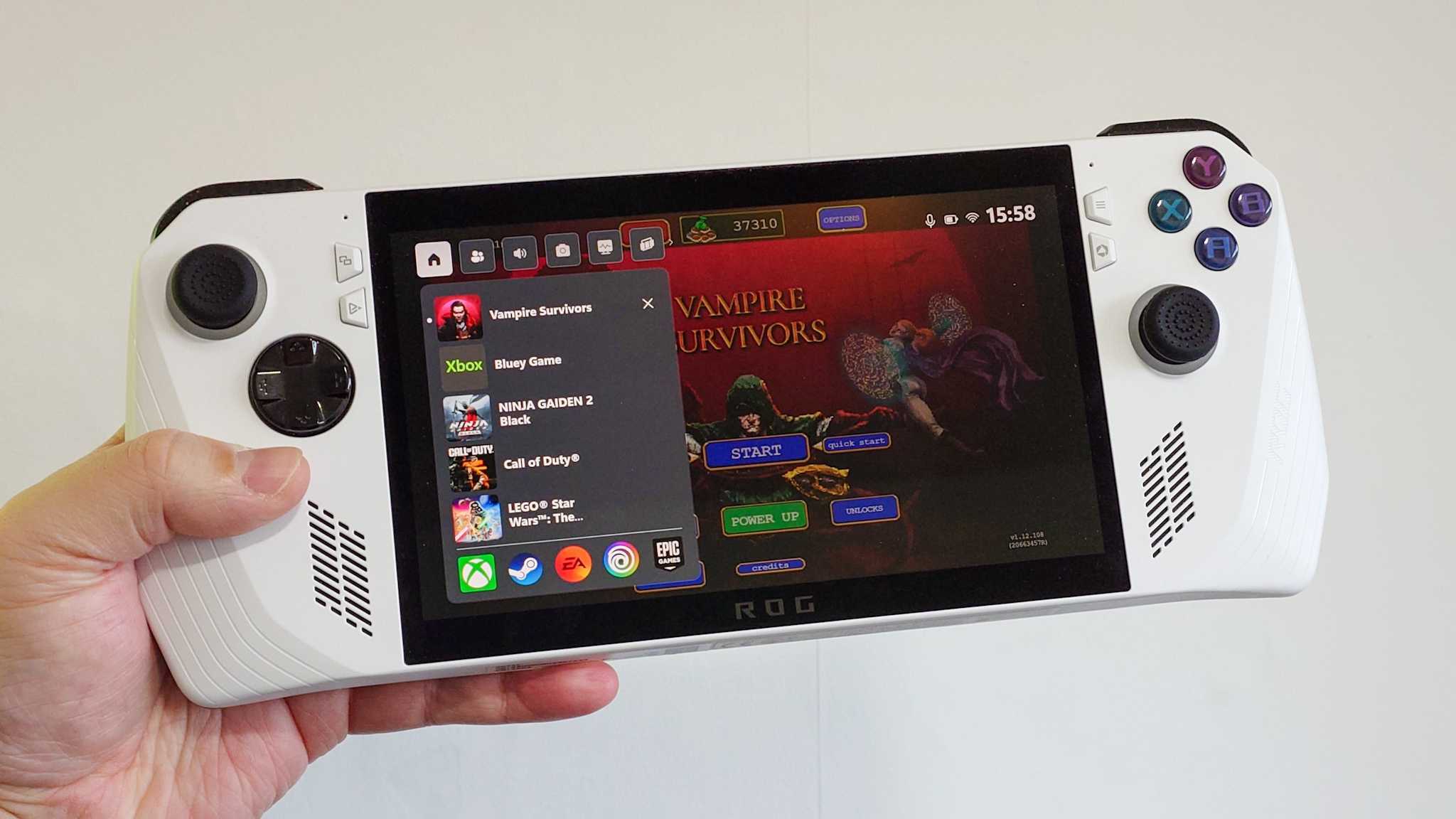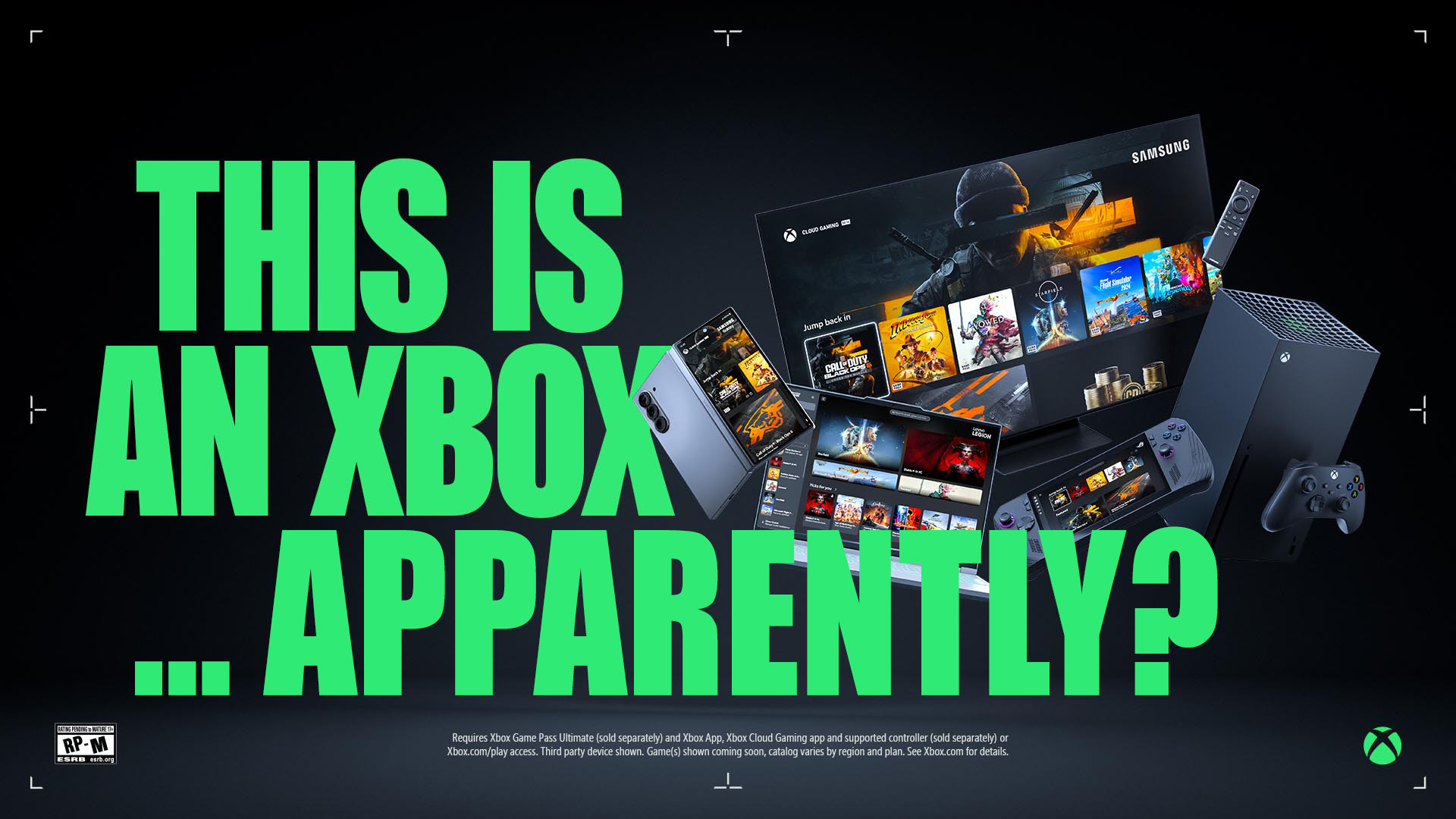Recently, I wrote an article about how it isn’t exclusive games keeping me on Xbox Series X|S, but instead, the exclusive features the Xbox ecosystem has.
Over the holiday period, I found myself extensively immersed in Final Fantasy Pixel Remaster Collection, which really represents the “This is an Xbox” vision better than most titles right now. Notably, Microsoft seems to have wound down its encompassing ecosystem ad campaign, with it vanishing from view entirely in recent weeks. You’d be forgiven for not knowing what I’m even talking about, given how quickly the campaign appeared and then disappeared, which in my opinion, shows a lack of conviction from Microsoft about some of their ecosystem pledges here.
Indeed, I wrote that the “This is an Xbox” campaign was premature. The marketing aimed to highlight that you can access Xbox games and services on any device, but I argued that suggesting someone can enjoy a full “Xbox experience” on their smartphone is borderline insulting. A vanishingly few portion of games on the Xbox store across PC and Xbox One, Series X|S support buy-once, play-anywhere features with cross-save, and fewer still support cloud.
With Xbox taking the focus off hardware more than ever, many pundits wonder if the gaming division is poised to go the way of Sega in years past. Is Xbox devolving into a video game publisher with no store ecosystem of its own, relying on other companies to distribute their games? I don’t think things are quite that dire yet, but unless Microsoft does something to turbo charge the “unique” aspects of its ecosystem soon, I can’t see the third-place player having much to offer the gaming landscape in the mid to long term.
What do Kingdom Come Deliverance 2, Monster Hunter Wilds, and Civilization 7 have in common?
What do they all have in common? A complete lack of support for Xbox Play Anywhere.
With Microsoft effectively giving up on selling the Xbox Series X|S, the firm seems intent on growing its revenue streams beyond its lagging hardware business by expanding to PlayStation 5 and soon, the Nintendo Switch 2. Only this past week, Microsoft revealed that Forza Horizon 5 is heading to PlayStation 5, with Age of Empires in tow as well. We’ve heard that Halo and Gears of War are on the way too, as Microsoft ditches exclusive games as a vehicle for selling Xbox Series X|S hardware.
Xbox console hardware sales have been on a steady decline year-over-year for several quarters at this point, leaving Xbox fans increasingly concerned for what it could mean for the long term health of the ecosystem. With fewer players, surely that means fewer reasons for developers to support the platform, leading to a downward spiral of exiting developers and exiting players.
RELATED: On Xbox’s growing pains, and its strange future
A couple of anchors Xbox has in its arsenal to keep themselves in the game comprises the most interesting and exciting aspects of its current ecosystem. As I mentioned, over the holiday period, I was able to take my Xbox saves for Final Fantasy Pixel Remaster Collection from my Xbox Series X console on TV, to my Lenovo Legion Go PC handheld when I didn’t have Wi-Fi, and to my phone on Xbox cloud with touch controls when I did have good internet. This is well and truly “the vision” of a grand Xbox future which aligns with how I think people increasingly want to play: your content, anywhere, everywhere, all at once. Youngsters who have grown up playing Fortnite, Minecraft, and Roblox simply expect games to be tied to their accounts, rather than any specific piece of hardware, with the ability to roam to any compatible device.
The problem is, Xbox’s vision for this functionality is pretty much exactly that: a vision.
There are thousands of games on Xbox consoles, but only a portion of them actually support Xbox Play Anywhere, and the vast majority of the games that do support the functionality aren’t exactly what you’d call spectacular games.
Microsoft’s filter for “Xbox Play Anywhere” on the PC app isn’t always completely consistent when it comes to listing the features either. The best way to discover Xbox Play Anywhere games is, perhaps hilariously, via this fan-made spreadsheet. Some games have cross-buy and cross-save, but some only have cross-save and not cross-buy. Most of course, have neither.
Crucially, the biggest and best games of the year organically shun Xbox Play Anywhere for whatever reason. It seems the only way games end up with Xbox Play Anywhere support is if Microsoft cuts a deal directly with the publisher, or ties it into Xbox Game Pass. Capcom supported the feature with “smaller” games like Kunitsu-Gami, Monster Hunter Rise, and ExoPrimal, but avoided it for their heavy hitters like Resident Evil 8 and Monster Hunter Wilds. Why didn’t Capcom come back? As far as I can tell, there seems to be essentially zero “AAA” games that supported Xbox Play Anywhere on an organic basis, with the vast majority having some kind of marketing deal with Microsoft. Even high-quality indie games don’t seem to see the value of Xbox Play Anywhere, for the most part.
If game publishers don’t see the value of Xbox Play Anywhere, I’m not sure how Microsoft’s long-term strategy for Xbox can play out in a positive way. Valve’s Steam platform has “play anywhere” basically built into its licensing agreement by default, with Steam-based consoles and handhelds on the horizon as a major existential threat to Xbox’s efforts here. Xbox has already capitulated to PlayStation, and the cadence of games hitting Xbox Play Anywhere doesn’t exactly inspire confidence in its ability to compete with Steam on PC either. Xbox risks becoming a jack of all trades, but master of none, if it doesn’t up the ante.
Without exclusive games, exclusive “features” need to be as strong as possible
Microsoft has effectively given up on this generation of Xbox console hardware. In a recent interview, Xbox lead Phil Spencer said he wanted Xbox hardware to compete on its unique features in the future, lamenting how “similar” Xbox and PlayStation had become on paper. The problem is, that’s years into the future — and customers are active in the ecosystem today, wondering what the point of Xbox is right now.
Xbox Game Pass is great, and the fact all Xbox first-party titles come with Xbox Play Anywhere as standard is also a great expectation to set. Microsoft has also been a frontrunner for building backwards compatibility into its consoles, while also delivering value, with its painfully underrated and delightfully affordable Xbox Series S. But it has an endured years of identity-battering misfires from weak games, fluctuating strategies, and contradictory statements leaving core fans wondering just how serious Microsoft is for the long term health of its own ecosystem.
Xbox owns Call of Duty, Candy Crush, World of Warcraft, and Minecraft. It’s certainly not going anywhere. There are still tens of millions of Xbox players on console spending money, and there are more ways than ever to access Microsoft’s slate of games. Microsoft’s first-party studios are firing on all cylinders too, with Avowed on the horizon, and conversations I’ve had with players in the review program make it sound very good indeed. Xbox might have its best year for upcoming Xbox games ever. But, since they’re all most likely going to PlayStation and certainly PC, they’re all unlikely to do anything for Xbox’s home-grown ecosystem woes.
To be honest, I actually have no idea *how* to add Xbox Play Anywhere support to my game 😅 It’s not a priority for me at the moment (there’s only so much time in a day sadly 😆), but I’ll definitely try to look into it!February 2, 2025
Microsoft needs to do more to entice developers to actually utilize the unique features that give Xbox its differentiation. Microsoft needs to work harder, faster, to improve and build upon Xbox Cloud Gaming, cross-platform saves, and crucially visibility of those features. There’s no social media account announcing the latest Xbox Play Anywhere games, like there is for Xbox Game Pass. The drops for Xbox Cloud Gaming “bring your own game” feature have been painfully slow so far compared to NVIDIA GeForce Now. Despite the Microsoft Store on PC offering game developers a more favorable sales cut than Steam and even Xbox itself, indie developers don’t see the point in porting their games across without a PC Game Pass deal. That’s a huge problem for the health of the store, in my view. Microsoft should be doing more to make it as painless as possible for developers of all shapes and sizes to deliver games on PC and Xbox both, if it wants to land the variety Steam enjoys. It should be doing more to bake in community tools on PC for developers to engage with their customers. The fact Towerborne, an Xbox published game, opted to run early access on Steam over Xbox should be a ringing indictment of how poor Xbox’s platform is for developers today.
The lack of organic support for Xbox’s differentiators is either because Microsoft hasn’t done enough to evangelize them to developers and customers — or, what if, perhaps more worryingly — those differentiators are actually not compelling enough beyond a niche within a niche.
It’s still relatively early days since Microsoft shifted strategy here, and maybe I’m being impatient. But, to hang the entire Xbox ecosystem’s future on these specific differentiators seems unlikely to prevent Microsoft’s slide towards being a mere “publisher” today.







